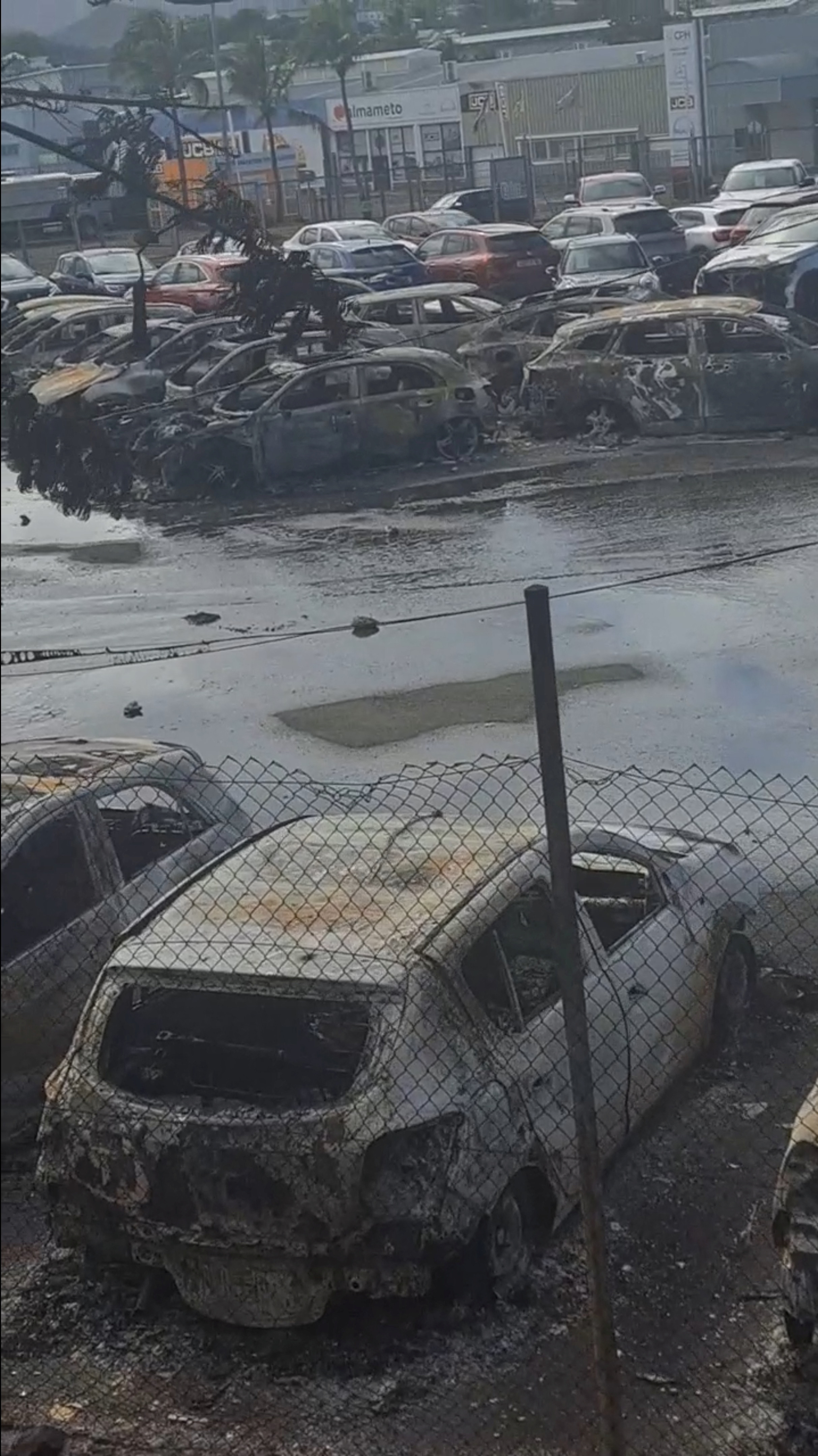Explainer-New Caledonia riots: why is President Macron headed to the restive French territory?

By Gabriel Stargardter
PARIS (Reuters) -President Emmanuel Macron is flying to New Caledonia in a bid to calm tensions in the French overseas territory after contested electoral reforms sparked the worst riots there in four decades.
More than a week after civil unrest first erupted, New Caledonia remains scarred by barricaded roads, incinerated buildings and looted businesses. A short-lived cyberattack sought to topple its internet, while scores of tourists have been airlifted out.
Six people have died in the riots, with nearly 300 people arrested after Paris sent in 1,000 police reinforcements.
The protests are the latest flashpoint in a decades-long tussle over France’s role in the island.
WHERE IS NEW CALEDONIA?
Set in the warm waters of the southwest Pacific, some 1,500 km (930 miles) east of Australia, New Caledonia is home to 270,000 people, including 41% Melanesian Kanaka and 24% of European origin, mostly French.
The archipelago was given its name by British explorer Captain James Cook in 1774. It was annexed by France in 1853 and was used as a penal colony until shortly before the turn of the 20th century.
WHY DOES IT MATTER?
New Caledonia, one of five island territories spanning the Indo-Pacific held by France, is central to Macron’s plan to maintain a firm French foothold in the Pacific.
New Caledonia, the world’s third-largest nickel producer, lies at the heart of a geopolitically complex maritime region, where China and the United States are jostling for power and influence in security and trade.
WHAT IS ITS HISTORY WITH FRANCE?
After France’s colonization in the 19th century, New Caledonia officially became a French overseas territory in 1946. Tensions mounted in the 1970s after a nickel boom that drew outsiders, leading to various conflicts between Paris and Kanaka independence movements.
A 1998 Nouméa Accord helped ease relations by outlining a path to gradual autonomy and restricting voting to the indigenous Kanaka and migrants living in New Caledonia before 1998. The accord allowed for three referendums to determine the future of the country. In all three, independence was rejected.
Nonetheless, the 2021 poll was boycotted by pro-independence parties, tarnishing the legitimacy of the result.
WHY HAVE TENSIONS EXPLODED RECENTLY?
Under the terms of the Noumea Accord, voting in provincial elections was restricted to people who had resided in New Caledonia prior to 1998, and their children.
The measure aimed to give greater representation to the minority Kanaks, but Paris has since come to view it as undemocratic.
Local leaders say the new reform, which still needs a final joint vote of the two houses of parliament in Versailles, will dilute the vote of the indigenous Kanaka.
Macron has said he would not convene such a vote before the end of June to enable dialogue, but the unrest has persisted.
WHAT DO LOCALS SAY?
Macron will meet elected officials and local representatives for talks focused on politics and reconstruction.
Pro-independent parties want Macron to scrap the electoral reform, and have warned his visit may only inflame tensions.
“We are expecting if he travels to Kanaka he will make some strong announcement that he is withdrawing this electoral bill,” said Jimmy Naon, from the Front de Liberation National Kanaka et Socialist (FLANKS) of New Caledonia, using the island’s indigenous name. “But if he is just coming here as a provocation – that might just turn bad.”
Some of Macron’s local allies are urging him to mothball the reform. Sonia Lagarde, mayor of the New Caledonia capital Noumea, who is from Macron’s Renaissance party, expressed hope Macron would delay signing the amendment into law to preserve her “city under siege.”
“We must take a pause and calm things down. Things have gone too far,” Lagarde told France 2 television.
(Reporting by Gabriel Stargardter; Editing by Ros Russell, Richard Lough and Kim Coghill)








